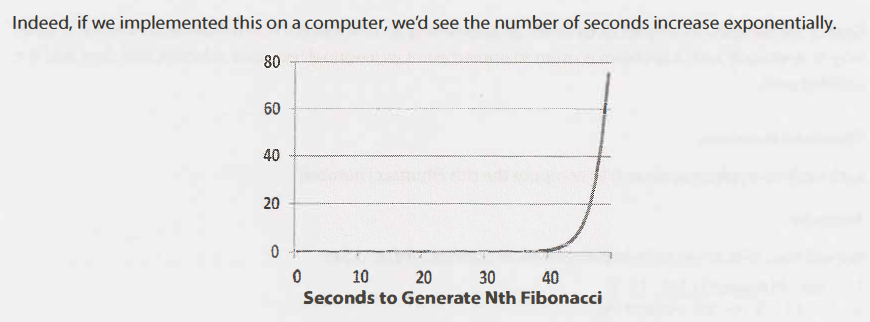Recursion and Dynamic Programming
There are a large number of recursive problems, many follow similar patterns. A goof hint: A problem is recursive is that it can be build off of subproblems.
A good candidate for recursion:
- Design an algorithm to compute the n-th...
- Write code to list the first n ...
- Implement a method to compute all ...
First of the thing: Recognize recursive problems
How to approach
Three of the most common approaches to develop an algorithm are bottom-up, Top-Down-Approach and Half-and-half.
Bottom-Up approach
- Start with knowing how to solve the problem from a simple case, one element, two elements, three elements ... and so on.
- The key here is to think about how you can build the solution for one case off of the previous case (Or multiple previous case.)
Top-Down Approach
Think about how we can divide the problem for case N into subproblems.
Be careful overlap between the cases.
Half-And-Half Approach(Often)
Divide the data set in half.
For example, binary search works with a half-and-half approach. When we look for an elements in a sorted array, we first figure out which half of the array contains the value. Then we recurse and search fro it in that half.
Merge Sort is also a half-and-half approach. We sort each half of the array and then merge together the sorted halves.
All recursive algorithms can be implemented iteratively, although sometimes the code to do so is much more complex.
Dynamic Programming & Memoization
For example-Fibonacci Numbers.(Leetcode 509. Fibonacci Number)
int fibonacci(int i) {
if (i == 0) return 0;
if (i == 1) return 1;
return fibonacci(i - 1) + fibonacci(i - 2);
}

Optimize(Top-Down Dynamic Programming(Or Memoization)
int fibonacci(int n) {
return fibonacci(n, new int[n + 1];
}
int fibonacci(int i, int [] memo) {
if (i == 0 || i == 1) return i;
if (memo[i] == 0) {
memo[i] = fibonacci(i - 1, memo) + fibonacci(i - 2, memo);
}
return memo[i];
}
Buttom-Up Dynamic Programming
int fibonacci(int n) {
if (n == 0) return 0;
else if (n == 1) return 1;
int [] memo = new int[n];
memo[0] = 0;
memo[1] = 1;
for(int i = 2; i < n; i++){
momo[i] = memo[i - 1] + memo[i - 2];
}
return memo[n - 1] + memo[n - 2];
}
We don't need the meno[n], we use a, b:
int fibonacci(int n) {
if (n == 0) return 0;
int a = 0, b = 1;
for (int i = 2; i < n; i++) {
int c = a + b;
a = b;
b = c;
}
return a + b;
}
Relative Questions
- Q1. Climbing Stairs / Triple Step. (Leetcode 70. Climbing-Stairs)
- Q2. Robot in a Grid. Imagine a robot sitting on the upper left hand corner of an NxN grid. The robot can only move in two directions: right and down. How many possible paths are there for the robot? (Leetcode 64. Unique Paths)
- Q3. Magic Index.
- Q4. Power set. Write a method that returns all subsets of a set.(Leetcode 78. Subsets)
- Q5. Recursive Multiply.
- Q6. Tower of Hanoi.
- Q7. Permutations without Dups.
- Q8. Permutations with Dups.
- Q9. Parens.
- Q10. Paint Fill.
- Q11. Coins.
- Q12. Eight Queens.
- Q13. Stack of Boxes.
- Q14. Boolean Evaluation.